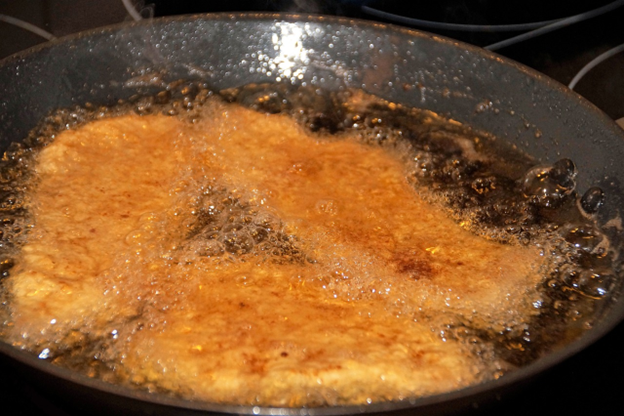Researchers in the UK are exploring solutions to complex technical questions related to biodiesel production, especially when it comes to repurposed oils. Some innovations are already in use, but the following are some of the leading innovators in the field and their technologies which transform the industry.
Visionary Fiber Technologies Inc.’s Fiber Reactor Technology
The Fiber Reactor technology is a groundbreaking innovation in industrial separation and mixing technologies, offering superior performance at lower maintenance costs with reduced capital expenditures throughout plant operations. Its unique design allows both separation processes to occur simultaneously within one vessel – something especially helpful to ethanol producers looking to increase process efficiency and yield.
The system is designed to quickly remove undesirable elements than conventional methods can, using continuous flow and an innovative chemical formulation. This approach minimizes energy inputs while simultaneously decreasing carbon intensity.
VFT’s fiber reactor technology has long been employed for the production of ethanol, but recently its application has expanded into other processing industries as well. These applications include creating hydrocolloids such as pectin – used in jams and jellies as an ingredient; functional citrus fibers which are increasingly important to consumers who value clean label products; as well as essential oils.
VFT recently made several significant announcements resulting from its technological innovations, including an agreement with ICM Inc. as an exclusive distributor and EPC contractor for VFT’s fiber reactor separation technology, used for eliminating impurities that hinder ethanol production processes.
VFT’s biodiesel technology represents an innovative breakthrough for the industry and will enable ethanol plants to transform into true biorefineries, producing higher-grade product that is both marketable and competitive, as well as fuel that meets stringent emissions regulations set forth by the Environmental Protection Agency of the United States.
This system can be used to pre-treat all forms of residual and waste oils and fats, making it perfect for multi feedstock biodiesel plants with multiple lines dedicated to different feedstock types like these – for instance one line may be dedicated solely to soy which will be treated using state-of-the-art enzymatic degumming technology, while there will also be one dedicated specifically to waste fats where physical degumming processes will take place.
With BDI’s proprietary technology, these systems can now handle different feedstocks without the need for separate pretreatment units, increasing production capacity while decreasing efficiency and capital expenses.

BDI’s Patented Multi Feedstock Technology
BDI-BioEnergy International’s Multi-Feedstock technology facilitates the production of premium BioDiesel from any variety of feedstock. This exclusive process was invented and patented in-house; approved as an official disposal process by the European Food Safety Authority as an official disposal method for high-risk fat material, using recyclable catalysts in production to guarantee safe products that can be consumed by humans.
This unique technology enables the processing of different animal fats collected as trap grease from industries and trade, including those collected as industrial trap grease. This can help prevent bovine spongiform encephalopathy (BSE), commonly referred to as “mad cow disease,” from returning and help avoid its return into Europe’s animal fat supply chains – something which had led to major bans. Waste fats will no longer enter sewage systems where they could potentially block them up further downstream.
As a result, the BDI Multi-Feedstock technology makes possible the production of premium quality BioDiesel at competitive pricing. It can easily fit into existing plants and works efficiently with various feedstock types regardless of their quality; all thanks to physical and chemical pretreatment followed by acid esterification followed by two-step potassium-based alkaline transesterification before washing, distillation and an optimized PCS system.
Since 1996, Styrian company BDI – Anlagenbau GmbH has earned international renown for its outstanding competence in developing and implementing innovative technologies for the production of renewable energies from waste and residual materials. Their patented multi-feedstock processes – such as ACRE, which offers producers two year return on investment based on interchangeable recyclable catalysts with robust system designs – have proven successful across Europe and worldwide.
Syntech BioMax
The Company is on a mission to address some of the world’s most urgent energy, environmental, economic, and social challenges through carbon negative clean energy production. To achieve this goal for Syntech Biofuel BioMax power generation system utilizes its innovative gasification process. This process eliminates traditional dirty and costly combustion devices like combustors, incinerators, digesters and biomass or pyrolysis equipment.
The BioMax generator is an automated and compact generator measuring 30ft x 30ft (10m x 10m). Using advanced thermal conversion without flame combustion or smoke emissions, ultra clean syngas produced through thermal conversion fuels modified internal combustion engines and gas micro-turbines which in turn produce electricity with zero waste emissions for production of electricity that can either be sold back onto the grid or used onsite to generate heat and power which provides revenue stream to plant operators.
BioMax uses a proprietary catalyst to convert syngas into lower aliphatic alcohols such as methanol and butanol at very high yields (110 gallons of alcohol per ton of biomass) at cost-competitive yields – an economically viable alternative to fossil fuel methanol production. Distillation allows BioMax to produce cost-competitive ethanol products while serving rapidly growing ethanol markets while providing valuable products like butanol for fuels, lubricants, and chemicals markets.
The Company’s disclosure controls and procedures are designed to provide reasonable assurance that information required of them by reports filed with the Securities and Exchange Commission is recorded, processed, summarized and reported within timeframes specified in the Securities Exchange Act of 1934. These controls and procedures also ensure that required disclosure information reaches management in a timely manner so decisions regarding required disclosure can be made promptly.







